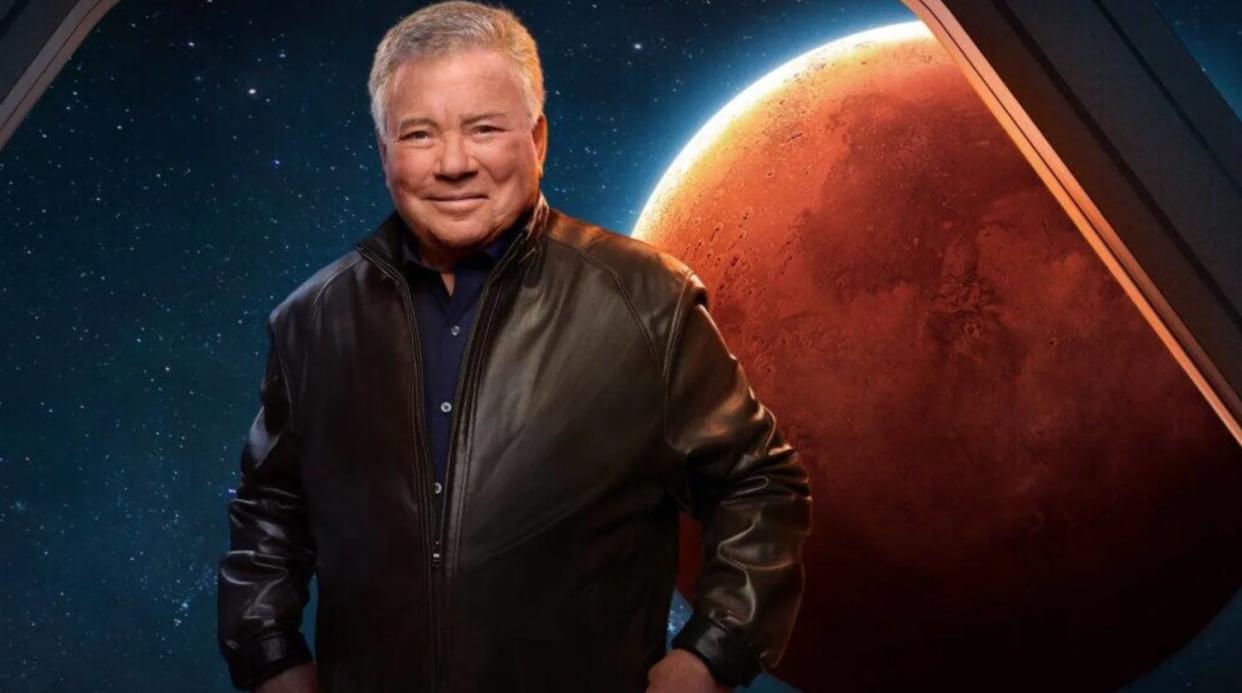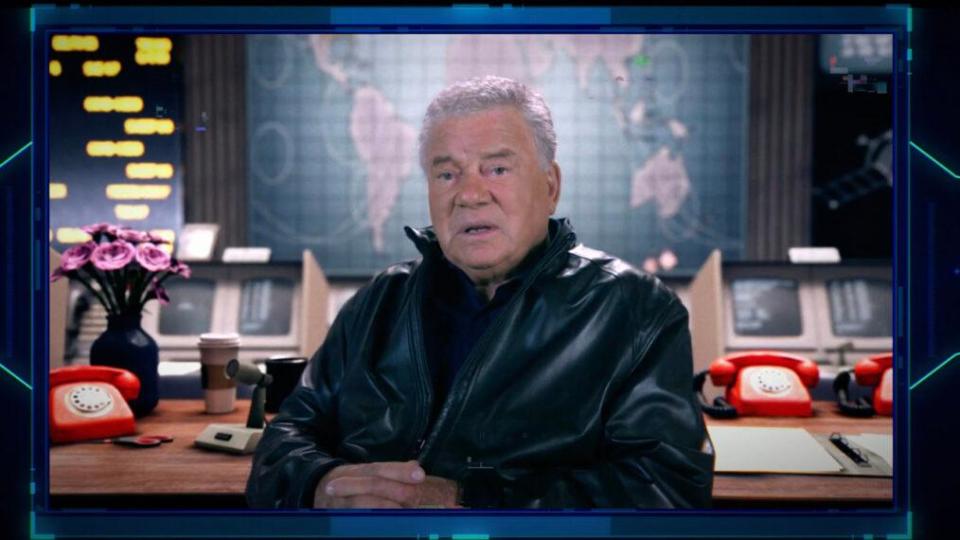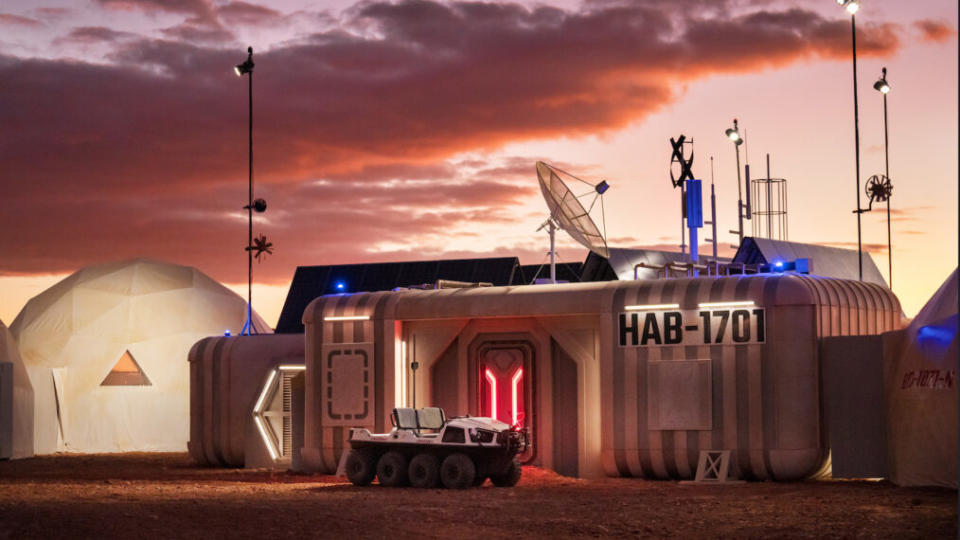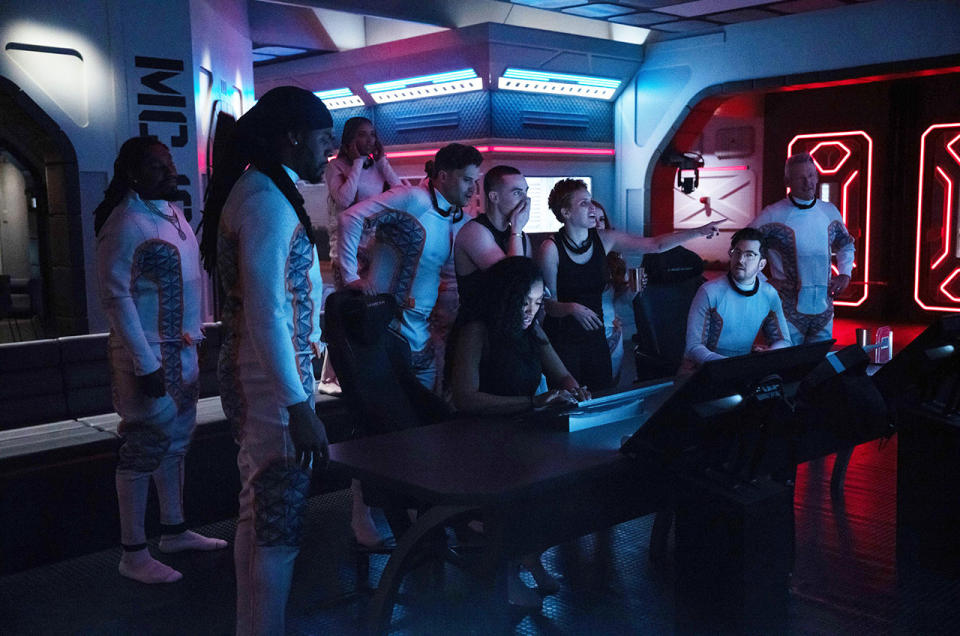William Shatner of 'Stars on Mars' on colonizing planets, swatting Aussie flies and healing Earth (exclusive)

- Oops!Something went wrong.Please try again later.
- Oops!Something went wrong.Please try again later.
Fox's "Stars on Mars" wraps up its debut season tonight (Aug. 28) after last week's surprise visit from the series' Mission Control host, "Star Trek" royalty William Shatner.
After 11 episodes of 12 "celebronaut" contestants battling it out on missions and tasks to earn the right to remain in the simulated Mars habitat erected near the Australian opal-mining town of Coober Pedy, the end has finally arrived.
Space.com connected with Shatner to hear about his role on this off-planet experiment, which uses a familiar "Survivor"-like elimination format to cast out members of the crew deemed to be non-essential.
Whether laying down tracks for a new children's album, jetting off to Taylor Sheridan's Run For A Million reining competition in Las Vegas, hopping over to Louisville to take part in a saddlebred horse show, or dropping in to the Mile High City to appear at the Denver Comic-Con, the 92-year-old Shatner is a living dynamo who has more activities and events on his schedule than any 10 celebrities half his age combined.
Related: William Shatner is back in the captain's chair in wild new 'Stars on Mars' TV show
"Stars on Mars" was a curious project proposed for the charismatic nonagenarian, and his indomitable spirit couldn't resist becoming a part of this novel sci-fi series.
"Well, 'Stars on Mars' is a great title," Shatner told Space.com. "As I'm sure you've intuited, I'm involved in lots of space things. My interest in space has never flagged. When they described it, it was almost indescribable. Is it a game show? Is it a competition? It seemed like a very fun idea, and I told them I'd be a part of it.
"They've gone to unprecedented lengths for a game show to simulate the atmosphere that there were portraying. It's a lovely expenditure of time and money to make a facsimile of what humans are going to have to do on Mars. Even the sets and their design is extraordinary."

What Shatner didn't anticipate was Fox saying that, while, he'd pre-tape his Mission Control segments from Los Angeles, he'd eventually have to join the cast in Australia.
"Getting to Australia is a chore. Once you're in Sydney, to get to where 'Stars on Mars' was on location, was another three hours, to get out to Coober Pedy in the Outback. It was forever. Coober Pedy is the opal center of Australia, maybe of the world, but it is a lonely place."
Shows like "Stars on Mars" act as an educational tool to present some of the challenges actual astronauts might encounter on a future Mars mission.
"If it's anything like the Outback, you don't want to go," Shatner said. "The heat and the dust and the dirt and the poisonous animals. The worst thing of all in Coober Pedy are the flies. There's no moisture there, so they attack your eyes and nose and mouth. I got PTSD while I was there just getting the flies off me. When I got in the car to go home to get to the chartered airplane to take me to Sydney, there was one fly in the car. And I got hysterical. 'Get that fly out of there!' I was absolutely driven mad, as everybody was, by the flies in Coober Pedy."

Thankfully, there are no insects on the Red Planet, or life of any kind that we've discovered yet, and that's perfectly fine with Shatner.
"Mars is lifeless. The mystery of Mars is what took place millions of years ago. It's obvious that there was water, which may be frozen under the surface. But it's so difficult to get there. Six months to get there. Six months to hang around and do things. Six months back. A year-and-a-half of three people in a spaceship. Colonizing a planet other than Earth is a great concept, but practically I can't imagine it.
"So when people talk about colonizing the solar system, I say to them, 'The only place to live is Earth, and we're defiling it. Stop thinking that we'll all move to Mars, because we're not going to.' We have to clean up the defecation we've done here. This beautiful planet took 3.8 billion years to evolve, and right now I'm looking out a window at green trees and birds and animals that evolved."
The planet Mars has always held a particular fascination with humanity, from books like H.G. Wells' "War of the Worlds" and Ray Bradbury's "The Martian Chronicles," to Hollywood films such as "Invaders From Mars," "Mars Attacks," and "The Martian."
Related: The best space movies of all time

RELATED STORIES:
— Super Bowl champ Richard Sherman on suiting up for Fox TV show 'Stars on Mars' (exclusive)
— Robot dogs race across a simulated Red Planet in new reality TV series 'Stars on Mars' (exclusive)
— Celebronauts race to plug holes in the hab on Fox's 'Stars on Mars' (exclusive clip)
Shatner believes that Mars' mystique is inextricably linked to the infinite awe and grandeur of the universe.
"There are forces at work that we can't even comprehend," he notes. "The mystery of what's going on in the universe being revealed slowly by telescopes like the James Webb. It's so profound that it beggars the imagination. Our little half-reptilian, aggressive, war-like brains can't conceive of the enormity of what's going on and the beautiful mystery of it all. And mystery is what intrigues human beings. That other half of our brains puts up the Webb telescope, whose sole purpose is curiosity.
"Go to the moon? Yeah, it's a good launching point. Why go to Mars? Curiosity. Not for colonization, not to escape Earth, but to find out what happened. Here's a planet that had an atmosphere and water. There might have been a civilization on Mars. I walked on Mars a couple of years ago. JPL [NASA's Jet Propulsion Laboratory] put me in the virtual reality goggles, and they put in the pictures they've taken with the rover. I turned around 360 degrees and I was on Mars for all intents and purposes, except for the oxygen. I really hope there are no flies on Mars. That would be awful."
The "Stars on Mars'" season finale airs on Fox tonight at 8 p.m. ET/PT.

